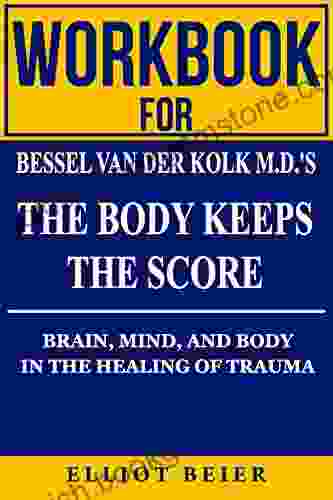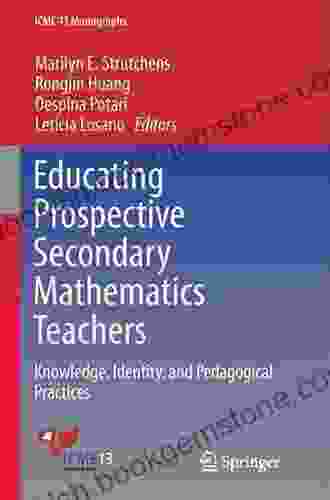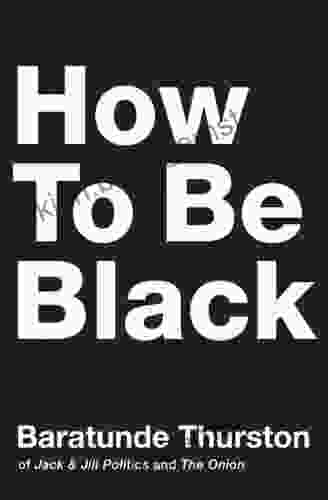Knowledge Identity in Mathematics Education: A Bridge between Theory and Practice

In the field of mathematics education, the concept of knowledge identity has emerged as a significant area of research and practice. Knowledge identity refers to the ways in which individuals understand and make sense of their own knowledge and abilities in mathematics.
4.5 out of 5
| Language | : | English |
| File size | : | 5523 KB |
| Text-to-Speech | : | Enabled |
| Screen Reader | : | Supported |
| Enhanced typesetting | : | Enabled |
| Word Wise | : | Enabled |
| Print length | : | 338 pages |
Research on knowledge identity has shown that it plays a crucial role in students' mathematical learning and achievement. Students with positive knowledge identities tend to be more engaged in mathematics, more confident in their abilities, and more likely to persist in the face of challenges. On the other hand, students with negative knowledge identities often experience anxiety and avoidance toward mathematics, and may be less likely to succeed in the subject.
Given the importance of knowledge identity, it is essential for educators to understand how to foster positive knowledge identities in their students. This article explores the concept of knowledge identity in mathematics education, and discusses how research on knowledge identity can inform pedagogical practices.
Theoretical Perspectives on Knowledge Identity
There are several different theoretical perspectives on knowledge identity. One influential perspective is social constructivism, which views knowledge identity as a product of social interactions and experiences.
According to social constructivism, individuals develop their knowledge identities through interactions with others, such as teachers, peers, and family members. These interactions shape individuals' beliefs about their own abilities and their place in the mathematical community.
Another theoretical perspective on knowledge identity is self-determination theory, which focuses on the role of motivation and autonomy in identity development. Self-determination theory suggests that individuals are more likely to develop positive knowledge identities when they feel competent, autonomous, and related to others.
When students feel competent in mathematics, they believe that they can succeed in the subject. This sense of competence can be fostered through positive experiences with mathematics, such as solving challenging problems, receiving positive feedback from teachers, and seeing themselves as successful in mathematics.
Autonomy refers to the extent to which individuals feel in control of their own learning. Students who feel autonomous in mathematics are more likely to be engaged in the subject and to persist in the face of challenges.
Relatedness refers to the extent to which individuals feel connected to others in the mathematics community. Students who feel related to others are more likely to seek help from others when needed, and to see themselves as part of a community of learners.
Pedagogical Practices for Fostering Knowledge Identity
Research on knowledge identity can inform pedagogical practices in several ways. One important implication of this research is that educators should focus on creating positive learning environments that support students' sense of competence, autonomy, and relatedness.
Here are some specific pedagogical practices that can be used to foster positive knowledge identities in mathematics students:
- Providing students with opportunities to experience success in mathematics. This can be done through a variety of activities, such as solving challenging problems, participating in mathematical games, and receiving positive feedback from teachers.
- Encouraging students to take ownership of their learning. This can be done by giving students choices in their learning, allowing them to set their own goals, and providing them with opportunities to reflect on their own progress.
- Creating a classroom community that is supportive and inclusive. This can be done by establishing clear expectations, providing students with opportunities to collaborate with others, and valuing diversity.
- Using culturally responsive teaching practices. This can be done by incorporating students' cultural backgrounds and experiences into mathematics instruction, and by creating a classroom environment that is welcoming and respectful of all students.
Knowledge identity is a complex and multifaceted construct that plays a significant role in students' mathematical learning and achievement. By understanding the concept of knowledge identity and its implications for pedagogical practice, educators can create learning environments that support students' sense of competence, autonomy, and relatedness, and help them to develop positive knowledge identities in mathematics.
References
- Boaler, J. (2016). Mathematical mindsets: Unleashing students' potential through creative math, inspiring messages and innovative teaching. John Wiley & Sons.
- Dweck, C. S. (2006). Mindset: The new psychology of success. Random House.
- Martin, D. B. (2007). Identity in mathematics education: Research on students' and teachers' identity issues as related to learning mathematics. In F. K. Lester (Ed.),Second handbook of research on mathematics teaching and learning (pp. 315-342). National Council of Teachers of Mathematics.
- Sfard, A. (2008). Thinking as communicating: Human development, the growth of discourses, and mathematization. Cambridge University Press.
- Wenger, E. (1998). Communities of practice: Learning, meaning, and identity. Cambridge University Press.
4.5 out of 5
| Language | : | English |
| File size | : | 5523 KB |
| Text-to-Speech | : | Enabled |
| Screen Reader | : | Supported |
| Enhanced typesetting | : | Enabled |
| Word Wise | : | Enabled |
| Print length | : | 338 pages |
Do you want to contribute by writing guest posts on this blog?
Please contact us and send us a resume of previous articles that you have written.
 Best Book
Best Book Page Flip
Page Flip Bookshelf
Bookshelf Literary loom
Literary loom Chapter
Chapter Bookish
Bookish PageTurner
PageTurner Bibliophile
Bibliophile Story
Story Inkwell
Inkwell Bookworm
Bookworm Labyrinth
Labyrinth Plot Twist
Plot Twist Prose
Prose Paperback
Paperback Storyteller
Storyteller Sanctuary
Sanctuary Fiction
Fiction Reading
Reading Chronicle
Chronicle Read
Read Tom Larcombe
Tom Larcombe Jessica Glasscock
Jessica Glasscock Pamela Cutter
Pamela Cutter Stephen Kirkpatrick
Stephen Kirkpatrick Luke Chmilenko
Luke Chmilenko Vic Shayne
Vic Shayne Marcos Mateu Mestre
Marcos Mateu Mestre Miranda July
Miranda July Phoenix Grey
Phoenix Grey Paul Seydor
Paul Seydor Janice Tingum
Janice Tingum Tyora Moody
Tyora Moody Robert Gottlieb
Robert Gottlieb Richard Butner
Richard Butner Print Replica Kindle Edition
Print Replica Kindle Edition Michael A Hoey
Michael A Hoey David J Schmidt
David J Schmidt Skip Mort
Skip Mort Sheila Watt Cloutier
Sheila Watt Cloutier Steve Stevenson
Steve Stevenson Victoria Charles
Victoria Charles Graham Cole
Graham Cole Nolan Clark
Nolan Clark Jessica Garrison
Jessica Garrison Nathan Mccall
Nathan Mccall Connie Easton
Connie Easton Graham Rowley
Graham Rowley Sian Pritchard Jones
Sian Pritchard Jones Nicholas Sparks
Nicholas Sparks Julie Beemer
Julie Beemer Jeff W Bens
Jeff W Bens Lucy Moore
Lucy Moore Steve Cohen
Steve Cohen Calum Best
Calum Best Paul Chiasson
Paul Chiasson Miriam Giguere
Miriam Giguere Richard S Dunn
Richard S Dunn Emily Byrne Curtis
Emily Byrne Curtis Sharon Stone
Sharon Stone Ruben Gallego
Ruben Gallego Eliot Schrefer
Eliot Schrefer Harold Green Iii
Harold Green Iii Richard Lippe
Richard Lippe Julia Fowler
Julia Fowler Wes Hubert
Wes Hubert Ken Budd
Ken Budd Tapirus
Tapirus Kay Redfield Jamison
Kay Redfield Jamison Mark T Conard
Mark T Conard William Evans
William Evans Naveed Rouhani
Naveed Rouhani Robert Evans
Robert Evans Joyce Roa
Joyce Roa Reginald F Lewis
Reginald F Lewis Julia Summerfield
Julia Summerfield Victor Steffensen
Victor Steffensen Talk In Italian
Talk In Italian Letitia Shelton
Letitia Shelton Kayla Watkins
Kayla Watkins Ton Viet Ta
Ton Viet Ta Ed Gillis
Ed Gillis Veronica G Henry
Veronica G Henry Liz Chaderton
Liz Chaderton Katherine Addison
Katherine Addison Roger Zelazny
Roger Zelazny Jonathan D Sarna
Jonathan D Sarna William L Fox
William L Fox Tom Cotter
Tom Cotter Patty Jansen
Patty Jansen Sesali Bowen
Sesali Bowen Malcolm C Salaman
Malcolm C Salaman Mariko Higaki
Mariko Higaki Thibault Ehrengardt
Thibault Ehrengardt Kathryn Aalto
Kathryn Aalto Laura Lee Fritz
Laura Lee Fritz Giovanni Iannoni
Giovanni Iannoni Megan Carr
Megan Carr Patrick Herrendorf
Patrick Herrendorf Mark Padilla
Mark Padilla Patti Bellantoni
Patti Bellantoni Kevin Henry
Kevin Henry John Paul Stonard
John Paul Stonard Maria Morera Johnson
Maria Morera Johnson John Fabian Carlson
John Fabian Carlson Scape Martinez
Scape Martinez Natalie Hodges
Natalie Hodges Ruby Dixon
Ruby Dixon Robert M Goldstein
Robert M Goldstein Scott David Plumlee
Scott David Plumlee Lara Quaranta
Lara Quaranta Tom Sito
Tom Sito Philip K Dick
Philip K Dick Francis Tipene
Francis Tipene Bill Arnott
Bill Arnott Sister Souljah
Sister Souljah Neil Bimbeau
Neil Bimbeau Nicholas Wapshott
Nicholas Wapshott Kerry Bogert
Kerry Bogert Patty A Wilson
Patty A Wilson Patrick Mcgilligan
Patrick Mcgilligan Sonia Faleiro
Sonia Faleiro Renia Spiegel
Renia Spiegel Russell Means
Russell Means Daniel Silva
Daniel Silva Will Stovall
Will Stovall Kennedy Ryan
Kennedy Ryan Ryan Roenfeld
Ryan Roenfeld Jim Santos
Jim Santos Shani Mootoo
Shani Mootoo Nancy Princenthal
Nancy Princenthal Margo Bond Collins
Margo Bond Collins Lincoln Michel
Lincoln Michel Megan Goldmine
Megan Goldmine William R Forstchen
William R Forstchen Martin Gardner
Martin Gardner Javy Lopez
Javy Lopez Philip Stewart
Philip Stewart Kenan Trebincevic
Kenan Trebincevic Michael Friel
Michael Friel Miranda Bridges
Miranda Bridges Manifestation Publishing House
Manifestation Publishing House John Lewis Burckhardt
John Lewis Burckhardt Mahi Wasfy
Mahi Wasfy Cath Caldwell
Cath Caldwell Chika Okeke Agulu
Chika Okeke Agulu Kristin Harmel
Kristin Harmel Jodi Bombardier
Jodi Bombardier Julia Child
Julia Child Lisa See
Lisa See Zondervan
Zondervan Michael Psellus
Michael Psellus Lou Darvas
Lou Darvas Sherri Granato
Sherri Granato Sawyer Black
Sawyer Black Clara Nieto
Clara Nieto Tova Rabinowitz
Tova Rabinowitz David Hopkins
David Hopkins Ilana Benady
Ilana Benady Jeff Shaara
Jeff Shaara Trevor Carroll
Trevor Carroll Diana Kupershmit
Diana Kupershmit Sangeeta Prasad
Sangeeta Prasad Paige R Penland
Paige R Penland Tim Moss
Tim Moss Robert Rummel Hudson
Robert Rummel Hudson Xander Boyce
Xander Boyce Learning Through Play
Learning Through Play Joe Kuster
Joe Kuster Mimi Grace
Mimi Grace Katharine Branning
Katharine Branning Yelapa Memo
Yelapa Memo Rosayra Pablo Cruz
Rosayra Pablo Cruz Grace Lee Boggs
Grace Lee Boggs Pilar M Herr
Pilar M Herr Jenny Lawson
Jenny Lawson 1st Edition Kindle Edition
1st Edition Kindle Edition Bwwm Club
Bwwm Club Akire C
Akire C Karl Ove Knausgaard
Karl Ove Knausgaard Mike Lowery
Mike Lowery Samra Habib
Samra Habib Jl Seegars
Jl Seegars Saul Tanpepper
Saul Tanpepper Alyssa Campbell
Alyssa Campbell Azim Nanji
Azim Nanji John Davidson
John Davidson Lisa Maker
Lisa Maker Magdalena Matulewicz
Magdalena Matulewicz Tonya Burrows
Tonya Burrows Marcy Conway
Marcy Conway Karma Waltonen
Karma Waltonen Rebecca Roanhorse
Rebecca Roanhorse Jean Guerrero
Jean Guerrero Vincent Van Gogh
Vincent Van Gogh Tim Anderson
Tim Anderson Roger Cowell
Roger Cowell Lindy Viandier
Lindy Viandier Sean Robins
Sean Robins Deborah Willis
Deborah Willis Jason A Ramos
Jason A Ramos Renee Rose
Renee Rose Paolo Bacigalupi
Paolo Bacigalupi Laura Reiter
Laura Reiter Andrew Cunningham
Andrew Cunningham Rem Koolhaas
Rem Koolhaas Richard Matheson
Richard Matheson Plutarch
Plutarch Ward Eister
Ward Eister John Dvorak
John Dvorak Nikita Thorn
Nikita Thorn Mary M Lane
Mary M Lane Hope Edelman
Hope Edelman Tracy Lash Decrosta
Tracy Lash Decrosta Mladen Sutej
Mladen Sutej Mary Stuart
Mary Stuart Oprah Winfrey
Oprah Winfrey Trova Heffernan
Trova Heffernan Walter Mosley
Walter Mosley Matthew Bourne
Matthew Bourne Jennifer Wright
Jennifer Wright Jubilee Brown
Jubilee Brown Vicki Rozema
Vicki Rozema Daniel James Brown
Daniel James Brown Keiko Okamoto
Keiko Okamoto James Graham Baker
James Graham Baker Kamal Saleem
Kamal Saleem Yishan Li
Yishan Li Sergio Toppi
Sergio Toppi Marc Cameron
Marc Cameron Megan Marshall
Megan Marshall Baratunde Thurston
Baratunde Thurston Nik Mahon
Nik Mahon David Cummings
David Cummings David Roberts
David Roberts Steve Van Beek
Steve Van Beek Stan Tekiela
Stan Tekiela S G Seabourne
S G Seabourne Ketut Suasti
Ketut Suasti Louis L Amour
Louis L Amour Mary Matsuda Gruenewald
Mary Matsuda Gruenewald John Donohue
John Donohue Elle Wright
Elle Wright Tim Testu
Tim Testu Suzanne Fredericq
Suzanne Fredericq Manuel Lima
Manuel Lima Mary Boone
Mary Boone Joe R Lansdale
Joe R Lansdale Jo Thomas
Jo Thomas Mary Carolyn Waldrep
Mary Carolyn Waldrep Robin Hobb
Robin Hobb Tom Sterling
Tom Sterling Mau Kun Yim
Mau Kun Yim I C Robledo
I C Robledo Didier Ghez
Didier Ghez Larisa Golubeva
Larisa Golubeva Christopher Reutinger
Christopher Reutinger Lewis Smile
Lewis Smile William Alexander Percy
William Alexander Percy Marteeka Karland
Marteeka Karland Vivian Gibson
Vivian Gibson Matthew Stavros
Matthew Stavros Sharon Mckee
Sharon Mckee Mary Breu
Mary Breu Svetlana Quindt
Svetlana Quindt Stephen Coles
Stephen Coles Kale James
Kale James Dave Brett
Dave Brett Yuko Green
Yuko Green Kathy Cano Murillo
Kathy Cano Murillo Yuliia Pozniak
Yuliia Pozniak Blair Davis
Blair Davis Neil Fontaine
Neil Fontaine Kim Kavin
Kim Kavin Shani Greene Dowdell
Shani Greene Dowdell Aer Ki Jyr
Aer Ki Jyr Lily Fulop
Lily Fulop Norman Lebrecht
Norman Lebrecht Mike Joyce
Mike Joyce Regina Clarke
Regina Clarke Kait Fennell
Kait Fennell Paul A Moua
Paul A Moua William Lidwell
William Lidwell Vladimir Geroimenko
Vladimir Geroimenko 1st Ed 2016 Edition
1st Ed 2016 Edition Joyce Huber
Joyce Huber Tim Wootton
Tim Wootton John Wesley Powell
John Wesley Powell Margaret C Collier
Margaret C Collier Rajat Gupta
Rajat Gupta Julian Rothenstein
Julian Rothenstein Sally Howard
Sally Howard Kathy Valentine
Kathy Valentine John Wyndham
John Wyndham Steve Glassman
Steve Glassman Stuart Douglas
Stuart Douglas Sonja Mejcher Atassi
Sonja Mejcher Atassi K Wan
K Wan Robert Finch
Robert Finch Linda Keteyian
Linda Keteyian Timothy Brook
Timothy Brook Mayukh Sen
Mayukh Sen Paul Noble
Paul Noble Usman Zafar Paracha
Usman Zafar Paracha Carl E Schorske
Carl E Schorske Nien Cheng
Nien Cheng Joy Horowitz
Joy Horowitz Margaret Eggleton
Margaret Eggleton Jerzy Kosinski
Jerzy Kosinski Marlena De Blasi
Marlena De Blasi Nick Barratt
Nick Barratt Rosemary Mahoney
Rosemary Mahoney Kim Barker
Kim Barker Burst Books
Burst Books Matt Patterson
Matt Patterson Michael Smith
Michael Smith Kristina Harris
Kristina Harris James Ernest Shaw
James Ernest Shaw David Baldacci
David Baldacci Deborah Fallows
Deborah Fallows Rosalind K Marshall
Rosalind K Marshall Alicia Beckton
Alicia Beckton Jon Contino
Jon Contino Tiya Rayne
Tiya Rayne Tanja Jung
Tanja Jung Svenja Reidelbach
Svenja Reidelbach Tanya Talaga
Tanya Talaga Peter Mayle
Peter Mayle Patrick Drazen
Patrick Drazen Matt Gilbert
Matt Gilbert Shelley Shepard Gray
Shelley Shepard Gray Christian Blauvelt
Christian Blauvelt Donna Williams
Donna Williams Sonia Moore
Sonia Moore Caroline Eden
Caroline Eden William Gibson
William Gibson Emma Dabiri
Emma Dabiri William Shatner
William Shatner Mark Lane
Mark Lane Neal Stephenson
Neal Stephenson Sonja B
Sonja B Priscilla Batzell
Priscilla Batzell Sally J Pla
Sally J Pla Luis J Rodriguez
Luis J Rodriguez Joseph Johnson
Joseph Johnson Maureen Hughes
Maureen Hughes William Carroll
William Carroll Rough Guides
Rough Guides Tom Brosnahan
Tom Brosnahan Paul Thimou
Paul Thimou Richard Fleischer
Richard Fleischer David Kadavy
David Kadavy T Stonefield
T Stonefield Christopher Lane
Christopher Lane Michael Oher
Michael Oher Sarah Abrevaya Stein
Sarah Abrevaya Stein Platte Productions Llc
Platte Productions Llc Mary Heron Dyer
Mary Heron Dyer Carly Murden
Carly Murden Tim Gallagher
Tim Gallagher Ben Box
Ben Box Rachel Shirley
Rachel Shirley Sam Shepard
Sam Shepard Mick Huerta
Mick Huerta Ryan Dempsey
Ryan Dempsey Monica L Miller
Monica L Miller Richard D Fisher
Richard D Fisher Brian Kevin
Brian Kevin William Hertling
William Hertling Jonathan Smidt
Jonathan Smidt Paul Greenhalgh
Paul Greenhalgh Charles Ney
Charles Ney Lauren Graham
Lauren Graham Theo Hodges
Theo Hodges Linda Rodriguez Mcrobbie
Linda Rodriguez Mcrobbie 1st Ed 2020 Edition Kindle Edition
1st Ed 2020 Edition Kindle Edition Omar Sharif Jr
Omar Sharif Jr Candice Marie Benbow
Candice Marie Benbow Robert Macklin
Robert Macklin Lorrie Morocha
Lorrie Morocha Marcus Samuelsson
Marcus Samuelsson Russell Zimmerman
Russell Zimmerman Mary Beard
Mary Beard Simon R Green
Simon R Green Julia Walker
Julia Walker Elliot Beier
Elliot Beier Shaka Senghor
Shaka Senghor Bernadette Simpson
Bernadette Simpson Violet Ramis Stiel
Violet Ramis Stiel K Alex Walker
K Alex Walker Jesse Thistle
Jesse Thistle Requiem Scolopendra
Requiem Scolopendra Kyriacos C Markides
Kyriacos C Markides James Hall
James Hall Toni Morrison
Toni Morrison David Paleschuck
David Paleschuck Kagan Mcleod
Kagan Mcleod Eamon Evans
Eamon Evans Charles B Gatewood
Charles B Gatewood Lisa Brahin
Lisa Brahin Niobia Bryant
Niobia Bryant Michael R Jackson
Michael R Jackson Robert Knott
Robert Knott Mark Odegard
Mark Odegard Kenneth Ma
Kenneth Ma Robyn Carr
Robyn Carr Milind Mulick
Milind Mulick Daniel Schinhofen
Daniel Schinhofen Tony Dungy
Tony Dungy Nicole Pivirotto
Nicole Pivirotto Sarah Vallance
Sarah Vallance Insight Guides
Insight Guides Mimi Thorisson
Mimi Thorisson Sean Platt
Sean Platt Tony Walsh
Tony Walsh Ulrike Fuchs
Ulrike Fuchs Bernth Lindfors
Bernth Lindfors Sosha Davis
Sosha Davis Matthew Hahn
Matthew Hahn Sarah Valentine
Sarah Valentine Nicki Thornton
Nicki Thornton Laird Barron
Laird Barron Tricia Rose
Tricia Rose Kim Catron
Kim Catron Lauren Beukes
Lauren Beukes James Hunter
James Hunter Luis Angel Echeverria
Luis Angel Echeverria Simona Merchant Dest
Simona Merchant Dest Will Jawando
Will Jawando Maria Augusta Trapp
Maria Augusta Trapp Marcello Di Cintio
Marcello Di Cintio Robert Henri
Robert Henri Stefan Pabst
Stefan Pabst M A Rothman
M A Rothman Lynn Garafola
Lynn Garafola Sam Crescent
Sam Crescent Lian Quan Zhen
Lian Quan Zhen Neal Adams
Neal Adams Daniel Gibbs
Daniel Gibbs Tricia Martineau Wagner
Tricia Martineau Wagner Brenda Lyons
Brenda Lyons Ronald Bergan
Ronald Bergan Richard Delacy
Richard Delacy 1st Ed 2019 Edition Kindle Edition
1st Ed 2019 Edition Kindle Edition Lisa Congdon
Lisa Congdon Liz Hurley
Liz Hurley Breanna De Shay
Breanna De Shay Sue Black
Sue Black James J Downes
James J Downes Steve Gordon Jr
Steve Gordon Jr Raquel Cepeda
Raquel Cepeda Derek Baxter
Derek Baxter Joel Stratte Mcclure
Joel Stratte Mcclure Victoria Rivera Mckinley
Victoria Rivera Mckinley Sally Blake
Sally Blake Anne H Berry
Anne H Berry Mike Grist
Mike Grist Bruce Spydar
Bruce Spydar Bill Rumpel
Bill Rumpel Nic Oatridge
Nic Oatridge Larry Taylor
Larry Taylor Russ Howard
Russ Howard Katie Dowe
Katie Dowe Momtaz Begum Hossain
Momtaz Begum Hossain Regine Abel
Regine Abel Kimberly Smith
Kimberly Smith Katie Middleton
Katie Middleton Paul Strathern
Paul Strathern Robbie Quinn
Robbie Quinn Helm Wotzkow
Helm Wotzkow Meir Shalev
Meir Shalev Richard Paul Russo
Richard Paul Russo Shelly Kim
Shelly Kim Sherryl Woods
Sherryl Woods Don Peri
Don Peri Yatir Nitzany
Yatir Nitzany Anne Manera
Anne Manera Tobias Zimmermann
Tobias Zimmermann N K Jemisin
N K Jemisin Ari Goldberg
Ari Goldberg Peter L Phillips
Peter L Phillips Pero Tafur
Pero Tafur Odie Hawkins
Odie Hawkins S L Osborne
S L Osborne Julie Yip Williams
Julie Yip Williams Rick Goldschmidt
Rick Goldschmidt Kindle Comixology
Kindle Comixology Laurinda Reddig
Laurinda Reddig Marie Mutsuki Mockett
Marie Mutsuki Mockett Cathy Johnson
Cathy Johnson Karen Lewis
Karen Lewis Tony Morgan
Tony Morgan M C Roberts
M C Roberts Joel Sonnenberg
Joel Sonnenberg Nicole Casey
Nicole Casey Tammy Ruggles
Tammy Ruggles Robert B Parker
Robert B Parker Randi Minetor
Randi Minetor Steven W Naifeh
Steven W Naifeh Kim Hutchinson
Kim Hutchinson Molly Haskell
Molly Haskell Travis Bagwell
Travis Bagwell Kenneth Laws
Kenneth Laws Tim Severin
Tim Severin John L Turner
John L Turner Peter Bone
Peter Bone Ashley Jaquavis
Ashley Jaquavis Megan Wells
Megan Wells Joshua James
Joshua James Jerry Saltz
Jerry Saltz Richard Feinberg
Richard Feinberg Alan R Hauser
Alan R Hauser John Thompson
John Thompson Julian May
Julian May Dean Koontz
Dean Koontz Joan Breton Connelly
Joan Breton Connelly Marie Louise Gay
Marie Louise Gay Monica Huerta
Monica Huerta Laylah Roberts
Laylah Roberts Steve Alpert
Steve Alpert Margo Jefferson
Margo Jefferson Bob Santos
Bob Santos Joann Perahia
Joann Perahia William C Cline
William C Cline Richard Fidler
Richard Fidler Honesty Price
Honesty Price Reanne Hemingway Douglass
Reanne Hemingway Douglass Molly Bang
Molly Bang Kristina Mcmorris
Kristina Mcmorris Kelcey Coe
Kelcey Coe David S Luton
David S Luton Nia Arthurs
Nia Arthurs W R Tymms
W R Tymms Ping Fu
Ping Fu Duncan James
Duncan James Steven Skaggs
Steven Skaggs Warren Dotz
Warren Dotz Stephanie Mehta
Stephanie Mehta Robin Rainbow Gate
Robin Rainbow Gate Klas Kristiansson
Klas Kristiansson Norman M Shulman
Norman M Shulman Tasha Black
Tasha Black Joel Shepherd
Joel Shepherd Philip Ball
Philip Ball Jeff Mellem
Jeff Mellem Greg Gutfeld
Greg Gutfeld Dan X Solo
Dan X Solo James Mcbride
James Mcbride Wallace Terry
Wallace Terry Rebecca Kobrin
Rebecca Kobrin Michael F Steltenkamp
Michael F Steltenkamp Nisha Garg
Nisha Garg Patrice Pavis
Patrice Pavis Myrnoska Scott
Myrnoska Scott Leo W Chang
Leo W Chang Andre Henry
Andre Henry Jenny Bowen
Jenny Bowen W Somerset Maugham
W Somerset Maugham 1st Ed 2021 Edition Kindle Edition
1st Ed 2021 Edition Kindle Edition Kathy Barnette
Kathy Barnette Tom Fay
Tom Fay Kassia St Clair
Kassia St Clair Rayna Denison
Rayna Denison K C Mills
K C Mills John Pomfret
John Pomfret Ruth Reichl
Ruth Reichl Yuniya Kawamura
Yuniya Kawamura Miriam F Williams
Miriam F Williams Manuel Huitzilli
Manuel Huitzilli John Carey Cremony
John Carey Cremony Kitty Williams
Kitty Williams Timothy S Susanin
Timothy S Susanin Norman Bryson
Norman Bryson Matthew Israel
Matthew Israel Martha Hall Kelly
Martha Hall Kelly Ted Bell
Ted Bell Q David Bowers
Q David Bowers Christopher Reeve
Christopher Reeve Nick Axel
Nick Axel Noah Hurowitz
Noah Hurowitz Judy Bolton Fasman
Judy Bolton Fasman 1st Ed 2018 Edition Kindle Edition
1st Ed 2018 Edition Kindle Edition Shlomo Avineri
Shlomo Avineri Liz Scheier
Liz Scheier Joseph Judson Dimock
Joseph Judson Dimock Katherine Le Kang
Katherine Le Kang Jessica Fanigliulo
Jessica Fanigliulo Holly Madison
Holly Madison Daniel Connolly
Daniel Connolly Kate Bryan
Kate Bryan Silvana Paternostro
Silvana Paternostro William W Johnstone
William W Johnstone Richard Ross
Richard Ross Vaughn Heppner
Vaughn Heppner Pauli Murray
Pauli Murray Paula Henriksen
Paula Henriksen Meredith Dillman
Meredith Dillman David Batchelor
David Batchelor Lauren Scruggs
Lauren Scruggs Steven G Krantz
Steven G Krantz Ellis Cose
Ellis Cose Lesley Riley
Lesley Riley Tamsin Ley
Tamsin Ley Richard W Pointer
Richard W Pointer W David Baird
W David Baird Jonathan Clements
Jonathan Clements Loung Ung
Loung Ung Nathan Riley
Nathan Riley Patrice Gopo
Patrice Gopo Katy Sprinkel
Katy Sprinkel W Glenn Griffin
W Glenn Griffin W Kamau Bell
W Kamau Bell Manny Serrato
Manny Serrato Graeme Swann
Graeme Swann Krystyna Chiger
Krystyna Chiger Roland L Mcintosh
Roland L Mcintosh Taniela Tabu
Taniela Tabu Johanna Lehner
Johanna Lehner Shemer Kuznits
Shemer Kuznits Mark C Childs
Mark C Childs Meniere Man
Meniere Man Richard J Powell
Richard J Powell Taylor Mason
Taylor Mason Pat Dews
Pat Dews Madhushree Ghosh
Madhushree Ghosh Wesley Gardner
Wesley Gardner Joseph Beuys
Joseph Beuys Jim Forest
Jim Forest Stephanie Nicole Norris
Stephanie Nicole Norris Martina Carracedo
Martina Carracedo Kindle Edition
Kindle Edition Jonah Mcdonald
Jonah Mcdonald Deaver Brown
Deaver Brown Ursa Dax
Ursa Dax Johno Ellison
Johno Ellison Mark Strand
Mark Strand Lisa Smith
Lisa Smith Donald J Trump
Donald J Trump Vowron Prime
Vowron Prime Sharmila Sen
Sharmila Sen Dakota Krout
Dakota Krout Scott Brown
Scott Brown Delphi Classics
Delphi Classics Diane Chamberlain
Diane Chamberlain Dk Eyewitness
Dk Eyewitness Stephen King
Stephen King John Muir
John Muir Oscar Owen
Oscar Owen Marcelo Hernandez Castillo
Marcelo Hernandez Castillo Kathleen Smith
Kathleen Smith Philip Lee
Philip Lee Phil Cleaver
Phil Cleaver Mariam Elias
Mariam Elias Michelle Jackson
Michelle Jackson Shaopeng Chen
Shaopeng Chen Stephen Saad
Stephen Saad Joseph Toone
Joseph Toone Philippa Ballantine
Philippa Ballantine Korani Connolly
Korani Connolly Various
Various Nadia Owusu
Nadia Owusu Kelly Gay
Kelly Gay Marianna Leivaditaki
Marianna Leivaditaki
Light bulbAdvertise smarter! Our strategic ad space ensures maximum exposure. Reserve your spot today!
 Gerald BellFollow ·16.5k
Gerald BellFollow ·16.5k Craig BlairFollow ·6.3k
Craig BlairFollow ·6.3k Harrison BlairFollow ·15.7k
Harrison BlairFollow ·15.7k Eliot FosterFollow ·9.6k
Eliot FosterFollow ·9.6k Kyle PowellFollow ·11.1k
Kyle PowellFollow ·11.1k Dominic SimmonsFollow ·7.6k
Dominic SimmonsFollow ·7.6k Rex HayesFollow ·5.3k
Rex HayesFollow ·5.3k Charlie ScottFollow ·13.3k
Charlie ScottFollow ·13.3k

 Marvin Hayes
Marvin HayesBarn Find Road Trip: Unearthing Hidden Automotive...
In the realm of automotive...

 Griffin Mitchell
Griffin MitchellWorkbook for Bessel van der Kolk's "The Body Keeps the...
Trauma is a pervasive issue that affects...

 Kevin Turner
Kevin TurnerExploring the Enchanting Islands of Puerto Rico:...
Embark on an...

 Mike Hayes
Mike HayesDiscover Santa Fe's Enchanting Charm with the DK...
Nestled at the foot of the...

 Colby Cox
Colby CoxConversational Arabic Quick and Easy: Yemeni Arabic...
Welcome to the exciting...

 Davion Powell
Davion PowellNative Labor in the Pacific World: A Comprehensive...
The Pacific World, encompassing the vast...
4.5 out of 5
| Language | : | English |
| File size | : | 5523 KB |
| Text-to-Speech | : | Enabled |
| Screen Reader | : | Supported |
| Enhanced typesetting | : | Enabled |
| Word Wise | : | Enabled |
| Print length | : | 338 pages |











